
Politics
15:55, 05-Dec-2018
Continuity or change: Who will replace Merkel as CDU leader?
Updated
14:44, 08-Dec-2018
By John Goodrich
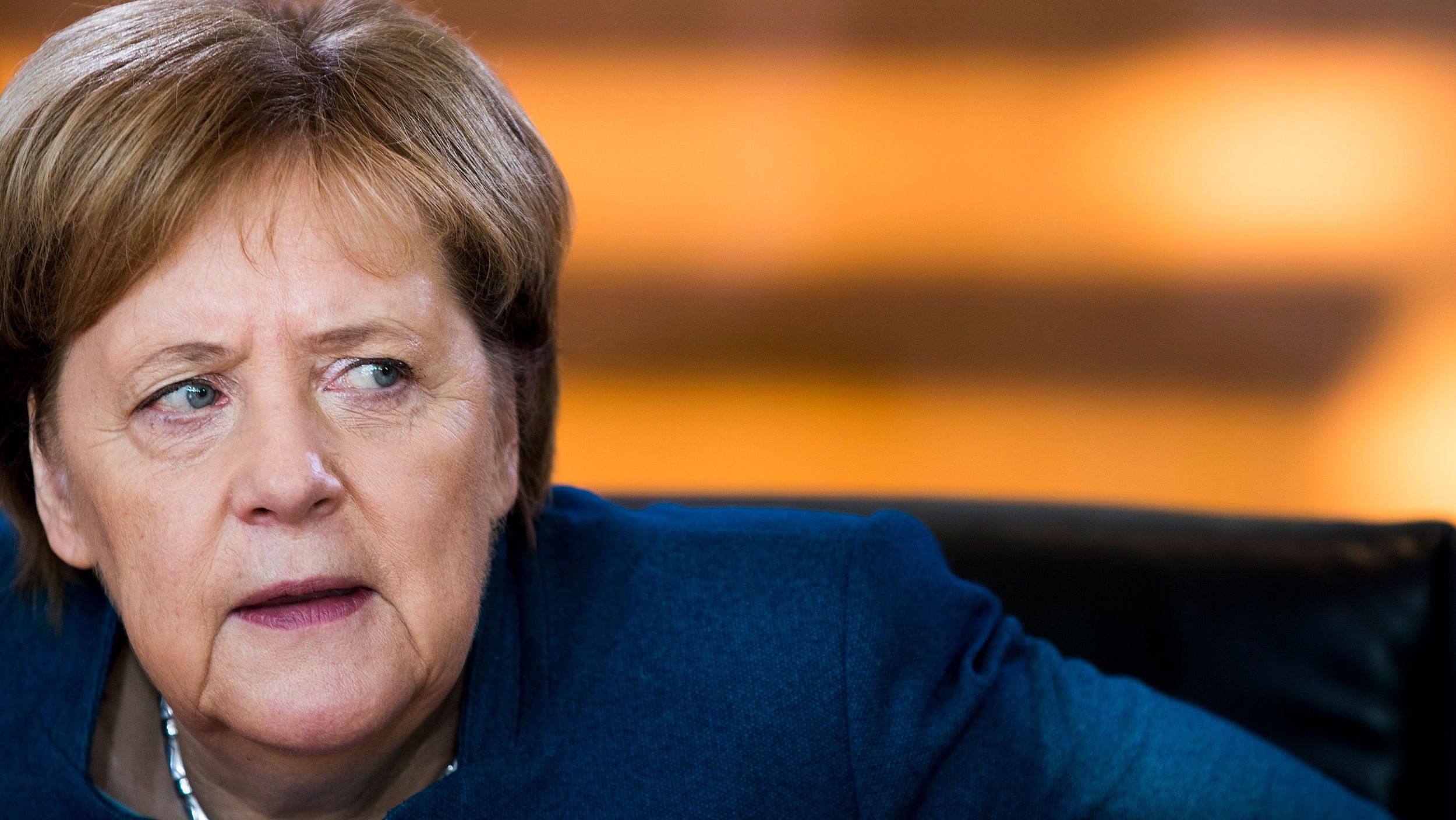
An election marking a turning point in the future leadership of German and European politics takes place in Hamburg on Friday.
Three names are on the ballot to replace Angela Merkel as head of Germany's governing party, the Christian Democratic Union, when 1,001 delegates cast their votes.
Whoever is elected – Annegret Kramp-Karrenbauer, Friedrich Merz or Jens Spahn – will be in pole position to take the helm of Europe's largest economy.
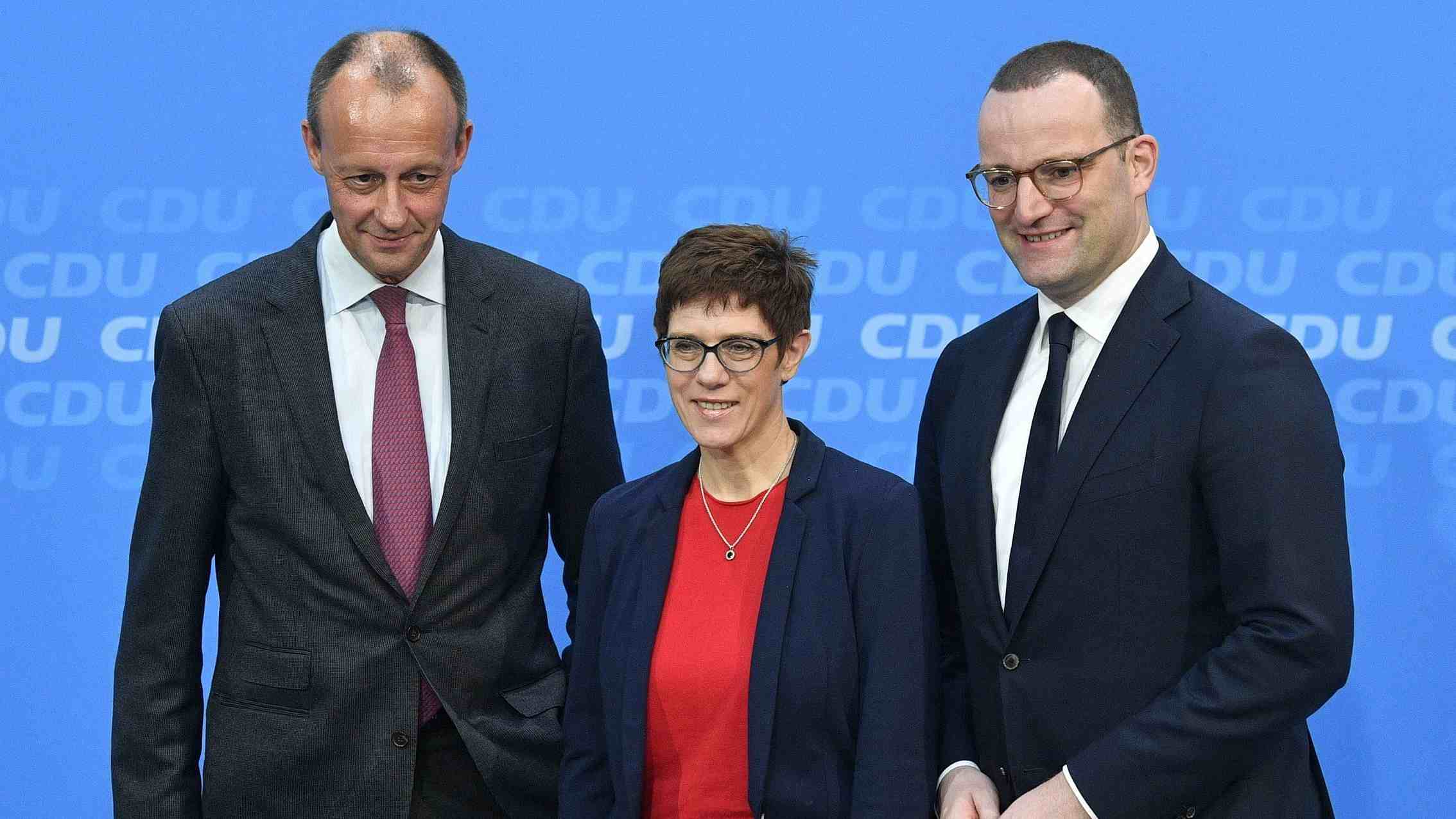
The top candidates for the Christian Democratic Union party's leadership: (L to R) Friedrich Merz, Annegret Kramp-Karrenbauer and Jens Spahn in Berlin, November 9, 2018. /VCG Photo
The top candidates for the Christian Democratic Union party's leadership: (L to R) Friedrich Merz, Annegret Kramp-Karrenbauer and Jens Spahn in Berlin, November 9, 2018. /VCG Photo
Merkel has been the dominant figure in German and European politics for over a decade and plans to stay on as chancellor until 2021.
Whether that is possible will depend on who the delegates vote for: Centrist continuity with Kramp-Karrenbauer probably preserves the three-way governing coalition and keeps Merkel as chancellor, conservative change with Merz or outsider Spahn would likely see the Social Democrats pull out of the alliance and hasten fresh elections.
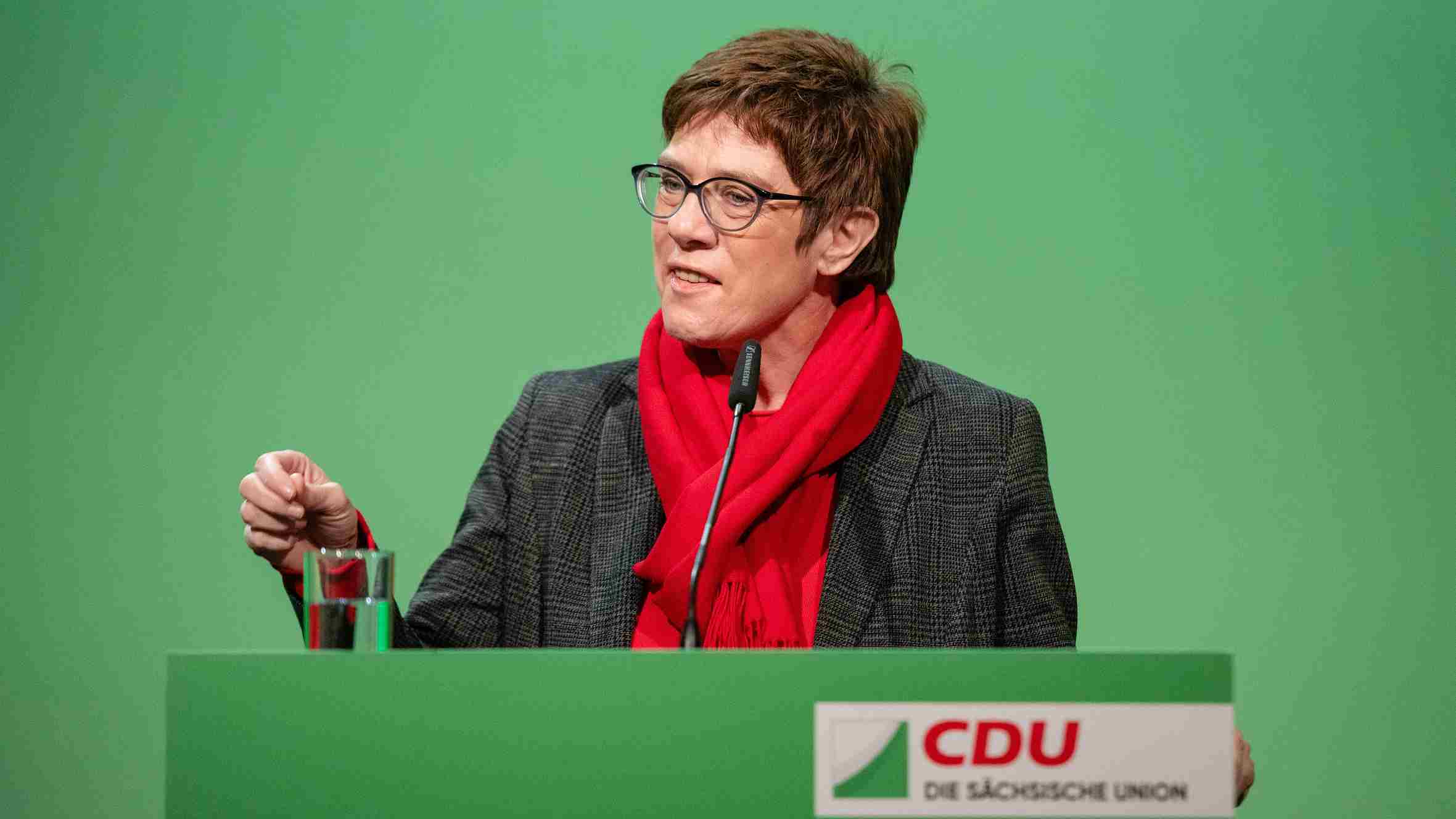
Annegret Kramp-Karrenbauer. /VCG Photo
Annegret Kramp-Karrenbauer. /VCG Photo
Annegret Kramp-Karrenbauer
Background: The 56-year-old, widely known as AKK, is currently the CDU's secretary-general and was previously chief minister in the state of Saarland.
Policy profile: The moderate on the center of a rightist party has insisted the media caricature of her as a "mini-Merkel" is inaccurate. On immigration, the hot topic of German politics, she has backed the chancellor but taken a more conservative line. She has focused on other issues on the campaign trail, and called for the CDU to become a big tent party again: reclaiming voters who have deserted for the Greens on the left and Alternative for Deutschland on the right.
Merkel relationship: Merkel's protégé – and assumed favored candidate – would offer the smoothest transition and the greatest likelihood of the chancellor staying in post until 2021.
Prospects: If CDU members want continuity, Kramp-Karrenbauer is their woman. She has long been spoken of as Merkel's replacement, but do members – and voters – want a change?
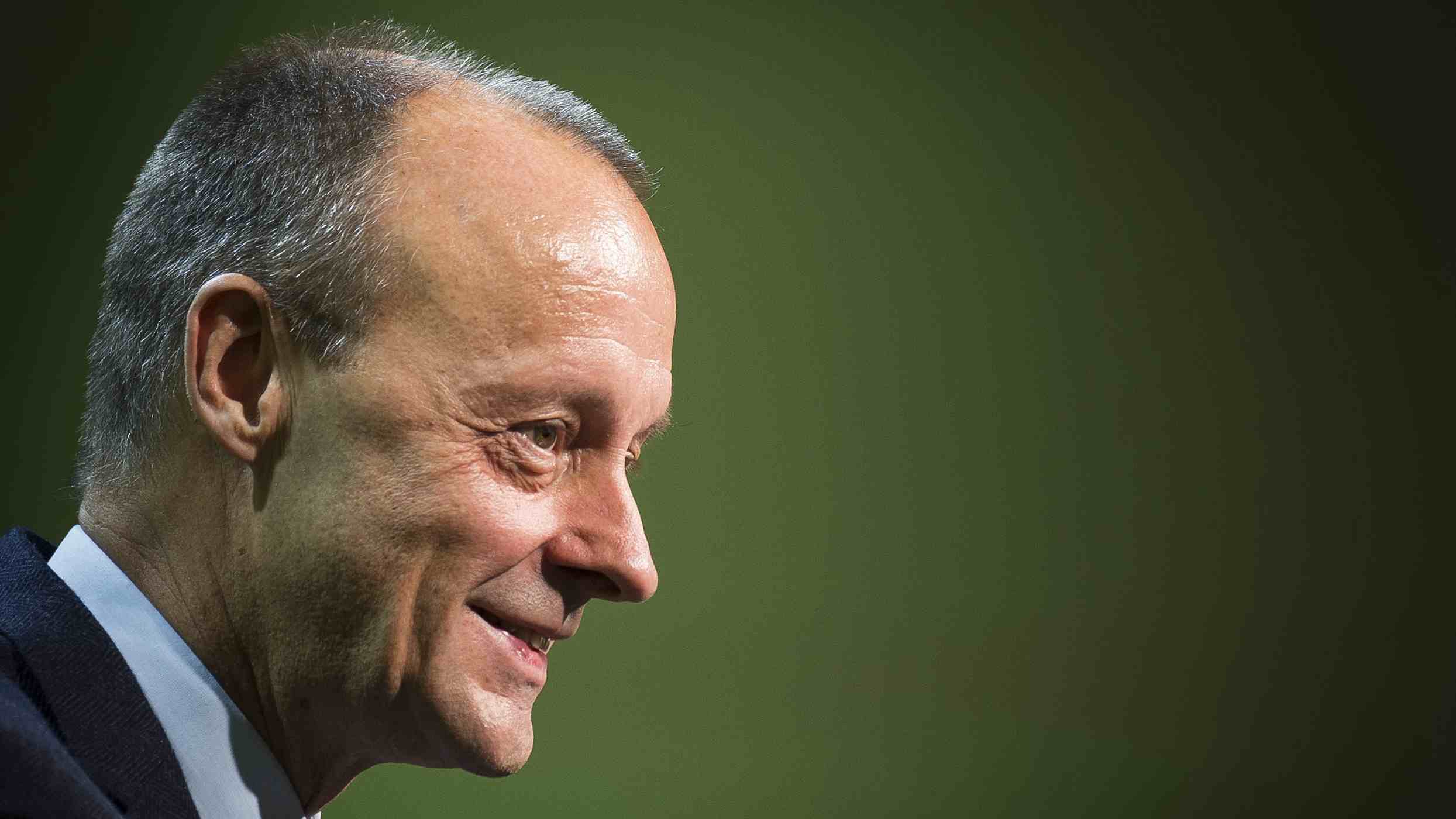
Friedrich Merz. /VCG Photo
Friedrich Merz. /VCG Photo
Friedrich Merz
Background: The charismatic 63-year-old lawyer left politics for business in 2009, having briefly served as head of the CDU/CSU bloc in the Bundestag.
Policy profile: The pro-business conservative is on the right of the party, and aims to attract voters who have left for the far-right Alternative for Deutschland. He is a returning star who has enlivened the campaign with a focus on traditional CDU values, but his questioning of the "right to asylum" in Germany has unnerved moderates.
Merkel relationship: A longtime rival – often referred to as the "anti-Merkel" – who has accused her of moving the party too far to the left. He challenged her for the party leadership back in 2000, and she ousted him as the CDU's parliamentary leader in 2002.
Prospects: Merz spent a decade outside politics building up a huge personal fortune and chairs the German branch of asset manager Blackrock. He has been boosted by the support of Wolfgang Schauble, the influential former finance minister, but has been able to cast himself as an outsider. If the CDU wants a break from Merkel – and probable early elections – who better than her rival?
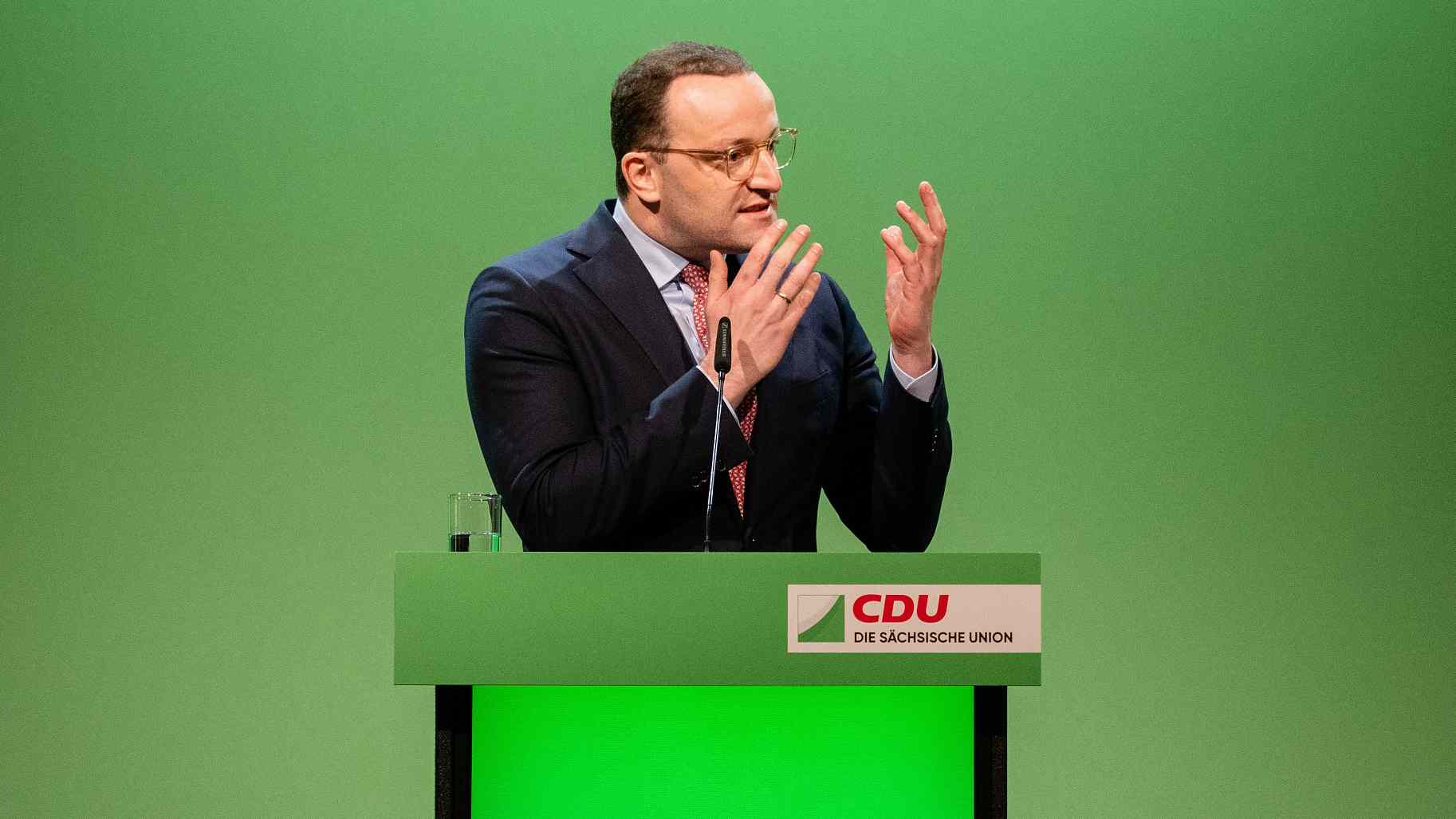
Jens Spahn. /VCG Photo
Jens Spahn. /VCG Photo
Jens Spahn
Background: The 38-year-old conservative, currently health minister, entered parliament at the age of just 22.
Policy profile: Spahn has openly criticized Merkel's refugee policy, called for the burqa to be banned in public and said he wants Germany to develop "a healthy, modern patriotism." During campaigning he put an emphasis on lower taxes and integration.
Merkel relationship: The youngest member of Merkel's cabinet has kept the position despite questioning aspects of her policy platform.
Prospects: Spahn has long been spoken of as a future party leader, but has been sidelined by Merz's decision to throw his hat in the ring. He is now an outside bet: Can he spring a surprise?

SITEMAP
Copyright © 2018 CGTN. Beijing ICP prepared NO.16065310-3
Copyright © 2018 CGTN. Beijing ICP prepared NO.16065310-3